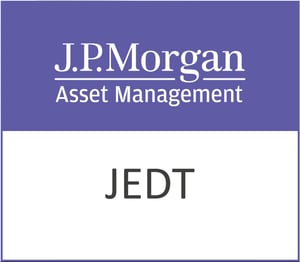In the ever-dynamic world of packaged foods and retail, Associated British Foods PLC (ABF.L) stands out as a diversified player, straddling multiple segments under the consumer defensive umbrella. With a footprint spanning groceries, ingredients, sugar, agriculture, and retail, ABF presents a multifaceted investment opportunity. This article delves into the financial dynamics at play for the company, offering insights for the discerning investor.
**Company Profile and Market Position**
Headquartered in London and established in 1934, ABF operates through five primary segments. The retail arm, known through chains like Primark and Penneys, is a significant player in the fashion retail sector. Meanwhile, its grocery division capitalises on an array of household staples, from hot beverages to bread and ethnic foods. The company’s global reach and broad product offering provide a robust hedge against sector-specific volatility, a key attraction for investors seeking stability in the consumer defensive sector.
**Stock Performance and Price Dynamics**
Currently trading at 1970.5 GBp, ABF’s share price has experienced a modest change of 35.50 (0.02%) recently. Within the past year, the stock has fluctuated between 1,841.50 and 2,377.00 GBp, reflecting a typical range for a company of its size and market cap, which stands at $14.02 billion. This range suggests both periods of investor optimism and caution, likely influenced by broader economic conditions and sector-specific challenges.
**Valuation and Financial Health**
ABF’s valuation metrics present a complex picture. The lack of a trailing P/E ratio and a notably high forward P/E of 1,032.70 suggest anticipation of significant future earnings or possibly an anomaly in earnings forecasts. The absence of a PEG ratio, Price/Book, and Price/Sales further complicates direct valuation comparisons, but the company’s substantial free cash flow of £863.6 million underscores its operational efficiency and capacity to reinvest or return capital to shareholders.
**Performance and Dividend Profile**
Despite a revenue contraction of 2.30%, ABF has managed a solid return on equity of 11.96%, indicative of effective management and a robust business model. The company’s earnings per share (EPS) of 1.77 and a dividend yield of 3.20% make it an attractive consideration for income-focused investors. With a dividend payout ratio of 35.53%, ABF balances rewarding shareholders with retaining earnings for strategic initiatives.
**Market Sentiment and Future Outlook**
Analyst ratings reveal a mixed sentiment: 4 buy, 10 hold, and 4 sell ratings, reflecting diverse views on ABF’s growth prospects. The target price range of 1,750.00 to 3,100.00 GBp suggests a potential upside of 12.29%, hinting at market optimism about the company’s strategic direction and market conditions. Moreover, the technical indicators paint a cautious picture; the stock trades below both the 50-day and 200-day moving averages, while an RSI of 67.74 approaches overbought territory, potentially signalling a need for a price correction.
**Strategic Positioning and Industry Dynamics**
ABF’s diversified business model and strategic international presence offer resilience against regional economic downturns. The company’s focus on essentials like groceries and clothing positions it well to weather economic uncertainties. However, challenges such as raw material cost fluctuations and currency exchange impacts remain pertinent.
For investors, ABF represents a blend of defensive stability and growth potential. The company’s strategic diversification and established market presence offer a compelling case for those seeking exposure to consumer staples with an added retail dimension. As always, potential investors should weigh these factors within the context of their individual risk tolerance and investment objectives.








































